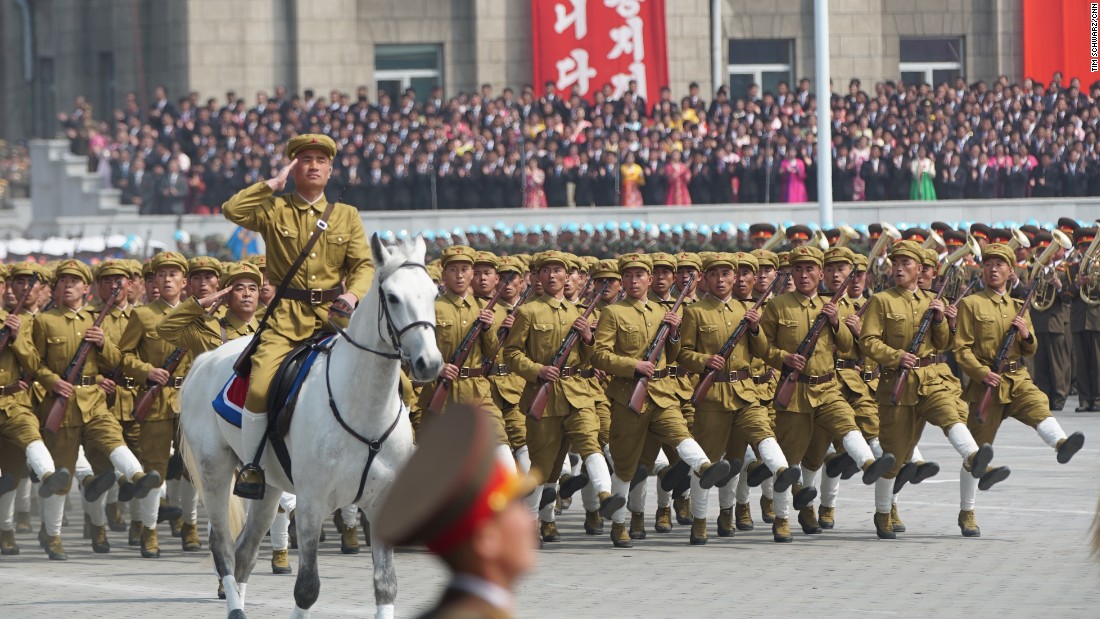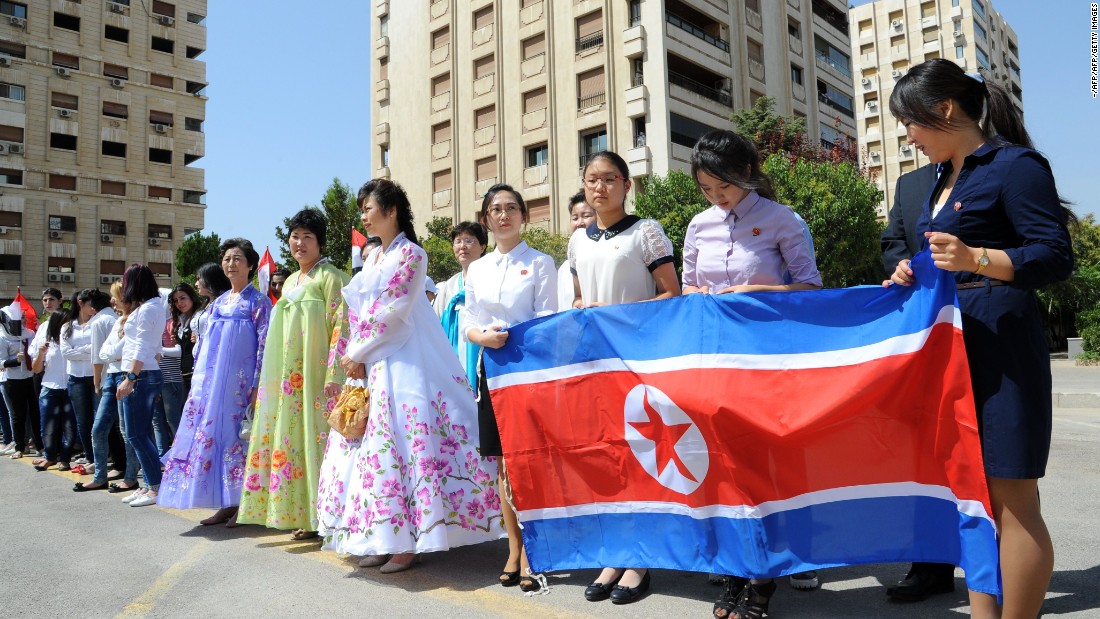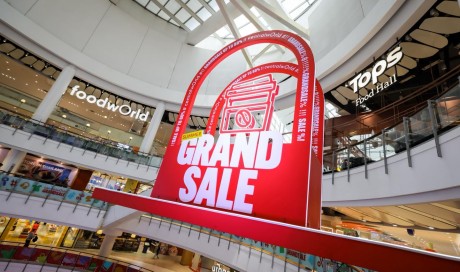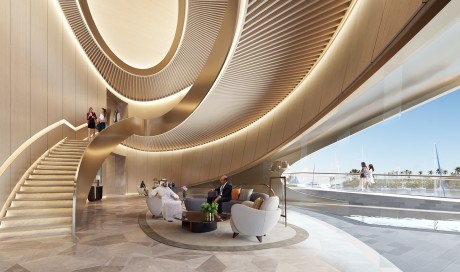The Hermit Kingdom has been defined and shaped by a cult of personality surrounding its ruling family. Tens of thousands of memorials and statues of the Kim dynasty are proudly displayed across the secretive country.

Unlike North Korea, which has been considered a pariah state since the Korean War, the Syrian government enjoyed diplomatic and political relations with Western countries.
Pyongyang's road to Damascus
Bashar al-Assad's father Hafez met with the founder of the North Korean regime, Kim Il Sung, in the 1970s. As client states of the Soviet Union, both countries developed military-to-military ties.
"The Syrian embassy existed in Pyongyang since 1970, since the Ba'ath party took power in Syria, and also North Korea helped the Syrian Republic Army to develop certain aircraft and missile systems," says Australian National University's Petrov.
For years, North Korea has been suspected of having provided Syria with advanced Scud missiles and the technology to produce them.
In 2007, Israel launched an airstrike on a suspected nuclear facility in Syria believed to have been developed with North Korean aid.Those ties have come under immense pressure since the outbreak of the Syrian civil war more than six years ago. The ties between North Korea and Syria, however, have remained friendly for decades.
These diplomatic relations have endured to this day. And their governments have a history of sending each other messages of solidarity and support.
Earlier this month, following Syria's suspected chemical attack on civilians, Kim sent Assad a congratulatory message to mark the founding anniversary of Syria's ruling party.
"The Syrian government and people are reliably defending the independence and security of the country, resolutely smashing the acts of aggression of all the hostile forces and meeting their challenges under your correct leadership," the message said, according to North Korean state news agency KCNA.
On April 20, the agency reported that Assad had replied, expressing thanks to Kim "for sending kind congratulations on the national day of Syria."
It said Assad "sincerely wished him good health and happiness and the Korean people greater progress and development," KCNA reported.
Two years ago, the Syrian government named a park in Damascus after Kim Il Sung. At the park's inauguration, Syria's Deputy Foreign Minister called the North Korean founder "a historic ruler and leader, famous for his struggle to liberate and build his country."

Super power patrons
In addition to benefiting from support for each other, Syria and North Korea also depend heavily on the patronage of much larger allies. Syria gets weapons and direct military support from Russia, while North Korea depends on China for more than 80% of its international trade.
But both are most aligned in their confrontation with the US. Syria's state news agency has even referred to the US as a "common adversary" of Syria and North Korea.
Shea Cotton, Research Associate from James Martin Center for Nonproliferation Studies, believes their mutual pariah status could push the two countries closer together.
"They are both fairly isolated countries and both have stuff that the other can deliver. North Korea desperately needs hard currency and Syria desperately needs weapons," he said.
US pressure
The two pariah nations quickly became a target of US President Donald Trump. His administration is trying to end Syria's alleged use of chemical weapons and North Korea's active nuclear weapons program by trying to persuade Moscow and Beijing to abandon Syria and North Korea, leading international efforts to isolate these regimes through sanctions, and threatening the use of military action.
US Vice President Mike Pence, visiting Seoul this week, invoked President Trump's recent military action in Syria and Afghanistan as a warning: "North Korea would do well not to test [President Trump's] resolve, or the strength of the armed forces of the United States."
But both Pyongyang and Damascus remain defiant.
Kim Jong Un's regime continues to threaten regular missile tests and defends its nuclear weapons program -- though both are banned under UN Security Council resolutions.
Meanwhile, despite a grinding conflict that has killed more than 400,000 Syrians and left nearly half of the population displaced, Bashar al-Assad still clings to power while denying accusations of chemical weapons use and systematic human rights abuses.
Share This Post














